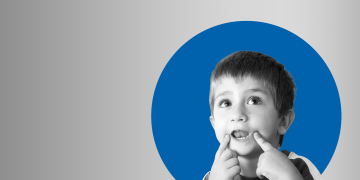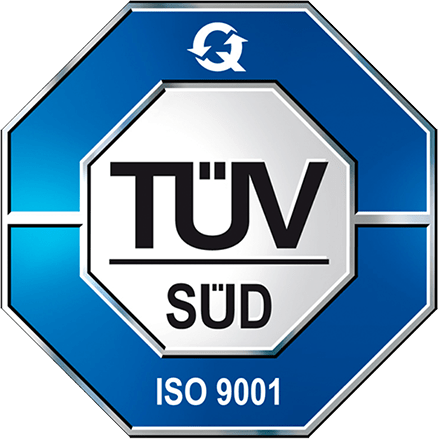Clinical speech therapy
Speech therapy is a branch of special needs pedagogy that deals with communication disorders and speech, hearing, and voice disorders.
This service is offered in the following branches:

Clinical speech therapy has long been considered a field focused exclusively on pediatric patients with difficulties in pronouncing sounds. Today, clinical speech therapy can be characterized as a dynamically developing field that works closely with other pedagogical and medical disciplines. It deals with the prevention, diagnosis, and therapy of communication disorders.
Clinical speech therapy deals with a very wide range of patients with various diagnoses of all ages. Our outpatient clinic is visited by infants, children, adults and seniors. All groups at our clinic are provided with quality diagnostics and follow-up therapy in cooperation with phoniatricians, otorhinolaryngologists, neurologists, psychiatrists, psychologists, physiotherapists, and ergotherapists (occupational therapists).
Specialized outpatient departments
Aphasia
Aphasia is an acquired disorder of a person’s speech, most often the result of a stroke, craniotrauma, or brain tumors. Patients with aphasia have difficulty remembering words. Sometimes, they are not even able to express them verbally at all.
Developmental and acquired dysarthria
Dysarthria is a disorder of motor speech. Developmental dysarthria is a problem resulting from congenital motor disabilities in children, most often from cerebral palsy, or from disabilities acquired in early childhood. Acquired dysarthria most often occurs as a result of a stroke, craniotrauma, or degenerative diseases.
Dysphagia—swallowing disorders
Swallowing disorders affect both children and adults. In children it is usually a problem resulting from a congenital neurological disease (e.g. cerebral palsy or syndrome defects). In adults it is frequently the consequence of strokes or other neurological diseases. Patients with swallowing disorders have difficulty controlling the bite in the mouth and then swallowing saliva or food with solid, semi-solid, or liquid consistency.
Communication disorder in dementia
In patients with dementia, communication problems can appear at the very beginning of the disease. This is often the first reason that leads the patient to the doctor. Problems can be manifested in gradually increasing difficulties in understanding spoken or written words, disorders in the reproduction of some words, simplification of expression in the form of poor and empty sentences, or difficulties in writing or reading.
Dyslalia
Dyslalia indicates a malfunction of one or more sounds. These are most often problems resulting from insufficiently developed auditory differentiation of individual sounds (e.g. the replacement of the K sound with that of T) or problems resulting from the incorrect motor realization of the sound (e.g. the “interdental” formation of sibilant consonants—hissing sounds—, or velar R formation, so-called “burring” or “ratcheting”—pronouncing one’s R wrongly at the back of one’s mouth).
Developmental dysphasia
Developmental dysphasia or specifically impaired speech development is a disorder that affects all levels of speech—vocabulary, grammar, pronunciation, and comprehension. However, developmental dysphasia is characterized not only by speech difficulties but also by markedly uneven development of the whole personality. It is a severe speech disorder requiring intensive and regular care not only in the office of a clinical speech therapist but also in the home environment.
Delayed speech development
It is generally said that if children lag significantly behind in speech development at the age of three (e.g. they speak little or even do not express themselves verbally, speak incomprehensibly, or are not interested in communication), it may be delayed speech development.
Balbuties—stuttering
Disruption of speech can occur at any age, mostly in the form of repeating individual sounds, syllables, words (e.g. “w-w-w—what”), their prolongation (e.g. “mmmmmom”), or unnaturally long pauses in speech.
Tumultus sermonis - cluttering
Tumultus sermonis indicates difficulties manifested by an unduly accelerated pace of speech. At the same time, some sounds may be omitted or repeated or even stammered.
Myofunctional disorder
Myofunctional disorders refer to imbalance problems with orofacial (facial) muscles. These are incorrect movement patterns that arise due to incorrect habits. Causes may include frequent inflammation of the upper respiratory tract, allergies, adenoid vegetation, a shortened sublingual bridle (fenulum), or persistent bad habits.
Payment for services
For insured persons
The private clinic LOGO has contracts with all the health insurance companies. Medical acts beyond the scope of contractual insurance are provided for direct payment. Prices are listed in the price list.
For the uninsured
Services to uninsured clients are provided for direct payment. Prices are listed in the price list.
Make an appointment at our clinic
We will be happy to help you live without barriers.
